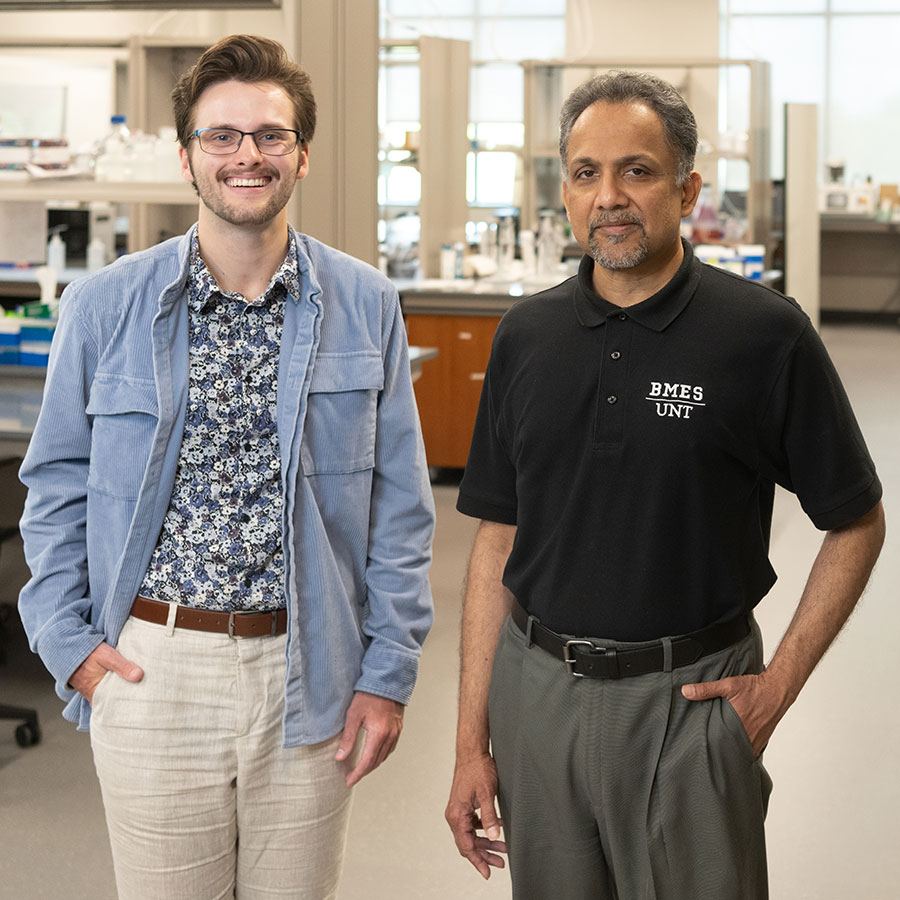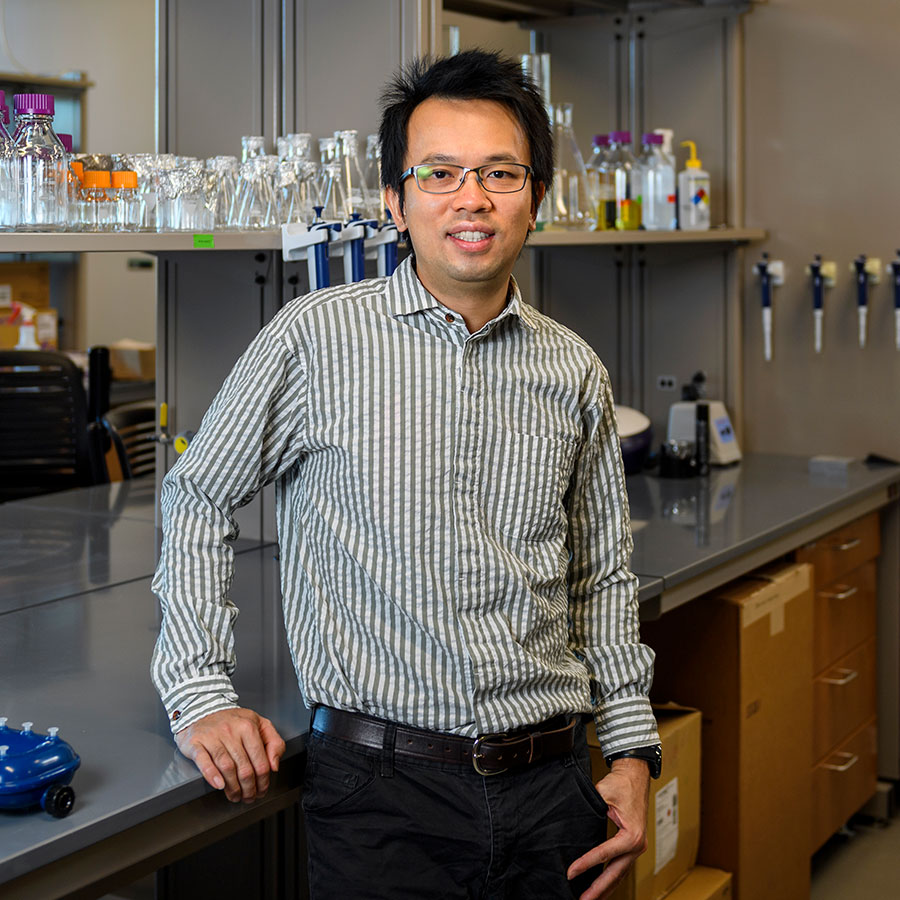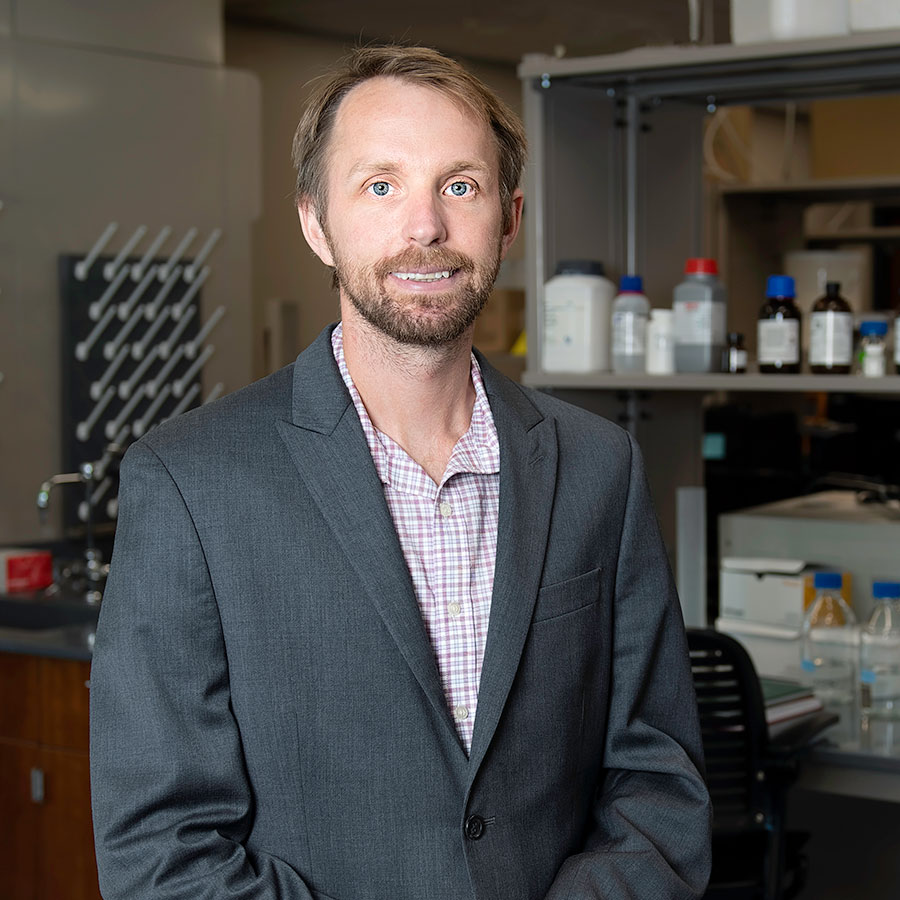"What approaches can we use to tackle a problem?" Chan says. "It's very exciting and
rewarding to take a project to the next level and improve people's health."
The program's students bring that same enthusiasm and creativity to their studies. At Discovery Park, they work in a makerspace,
which includes a virtual surgery table where they can "remove" organs and "transplant"
prosthetics. A bio 3D printer allows them to print artificial skin. The space is filled
with their projects, such as a wheelchair that helps users climb stairs, a therapeutic
chair to decrease pain, and an inflatable airbag for senior citizens to wear to help
ease a fall.
As part of their capstone project, seniors are required to work together to create
a device. Alexandra Teoh ('21) was part of a team that created a biomaterial that mimics the drug absorption
properties of the laryngeal mucous membrane for the startup medical device company
DUALAMS. The team used a UV curing system to make it and a compression testing machine,
which tested the efficacy of their biomaterial compared to the typical testing methods
-- eliminating the need for animal testing.
Teoh, who began studying at the University of Texas Medical Branch at Galveston this
summer, is working toward a career in both pediatrics and research.
"Biomedical engineering sold me on pursuing research," she says. "I really want to
make sure my career is dedicated to creating solutions to help others."
At a Plano high school summer program, Trevor Exley ('20, '21 M.S.) found his calling when he created a 3D-printed hand controlled through
his own muscles. Later, he was persuaded by Vaidyanathan's vision when he came to
UNT (he also wanted a taste of the prestigious music program and played trombone with
the Green Brigade and Nine O'Clock Lab Band during his undergraduate years).
Exley's decision was affirmed by attending classes -- and he also realized after taking
the Artificial Intelligence for Wearables course taught by Assistant Professor Mark Albert that the biomedical engineering field demanded knowledge in multiple disciplines.
"You're always going to have to be learning," Exley says. "Last year, I was scrambling
to learn Python (programming language) just so I could jump into machine learning."
For his master's degree, he used machine learning to examine the data of individuals
with Parkinson's Disease standing on force plate sensors. These sensors determined
how the individuals were allocating pressure and measured such things as tremors.
Alternative tools such as those can be especially valuable and affordable for telemedicine
and remote clinics -- and help health care workers in organizations such as Doctors
Without Borders who don't work in traditional hospital settings.
Exley is now one of the first students in UNT's biomedical engineering doctoral program,
and he says he couldn't find a better fit for his career.
"The doctoral degree will set me up to conduct research independently, sharpen my
focus and become an expert in the field and contribute to science," he says. "I'll
gain insight working on collaborative projects and look more closely at personal cases
where I can innovate for medical devices to be more accessible and affordable to those
who are in need."


